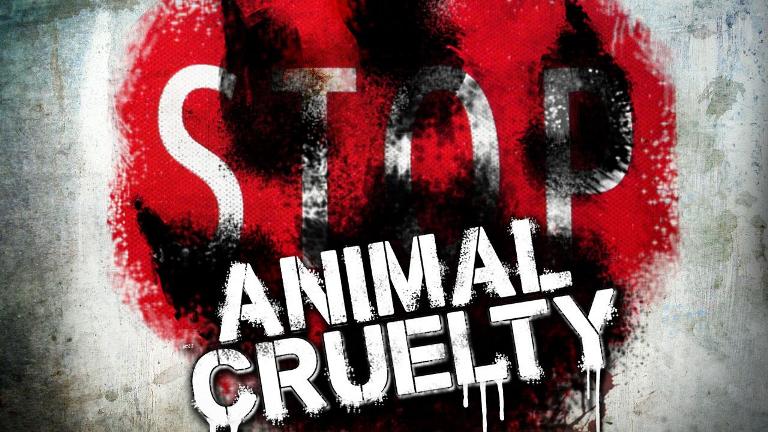This article is written by Bhavyika Jain, a learner of Symbiosis Law School, NOIDA. This article deals with the cruelty that animals face through human hands and that are the steps to report and stop this violence against animals in India.
Table of Contents
Introduction
Since the dawn of time, India has been renowned as a land where animals are not only respected but also worshipped. Cows, tigers, lions, elephants, horses, bulls, snakes, and monkeys are revered in Hindu mythology. On the one hand, people show their devotion to deities and the animals linked with them at temples, yet the animals are also subjected to violence in venues such as circuses.
Humans have been experiencing sadness since the COVID-19 pandemic, which culminated in a three-month lockdown. It’s also important to consider what imprisoned animals in zoos and circuses go through after spending most of their life there.
What is animal abuse
Animal cruelty is illegal in every state, but a law is only as good as its enforcement, which is why animals count on us to protect them by reporting animal abuse. We never know when a mishap will occur or when animals may require immediate assistance, but we do know that we must be prepared. This life-saving work would not be feasible without our help.
The suffering of animals at the hands of humans is heartbreaking, terrible, and furious. It’s even more so when we know that our daily decisions—like what we eat for lunch and what sort of things we buy—could be directly enabling some of this cruelty. But, as difficult as it is to contemplate, we cannot prevent animal suffering by simply turning a blind eye and pretending it does not exist. The types of activities that are done to abuse can be:
- The Prevention of Cruelty to Animals Act of 1960 prohibits the sale of pets over the internet in India. They go over the many criteria and conditions that a person or organisation must meet in order to open a pet store and conduct pet animal purchasing and selling. Fraudulent activities through the internet.
- The majority of the pets are being sold illegally on the internet which leads to fraud. They are bred in deplorable conditions and even sold without vaccination, endangering not only the life of the pet but also the purchaser.
- Animals are frequently abused as a result of hoarding behaviour. Hoarders may cause catastrophic neglect to animals by sheltering far more than they can adequately care for. If such things are discovered local animal control authorities can be contacted. Some animal hoarding cases are more difficult to resolve than others.
How are animals subjected to cruelty
Non-Accidental Injury (NAI) refers to a person’s malicious intent when he or she has purposefully caused harm to an animal. Intentional cruelty is typically among the most upsetting, and it should be taken seriously as an indication of significant mental illness. This behaviour is frequently linked to sociopathic behaviour and should be handled seriously.
Animal abuse in violent households can take different forms and be caused by a variety of factors. Many times, an abusive parent or domestic partner would kill, or threaten to kill, the family pets in order to coerce family members into sexual abuse, to keep silent about previous or ongoing abuse, or simply to psychologically torture the victims in order to exercise their “power.”
Cases of neglect are typical of passive cruelty, in which the criminal is the lack of action rather than the deed itself — but don’t get deceived by the word. Animal neglect can result in excruciating pain and suffering for the animal. Starvation, dehydration, parasite infestations, allowing a collar to grow into an animal’s skin, providing inadequate shelter in inclement weather, and failing to seek veterinary care when an animal needs medical attention are all examples of neglect.
How to report cruelty
Witnessing animal cruelty is traumatic, but comprehending how to act accordingly can save a life and prevent the abuser from harming more victims. According to PETA, nine things can be taken care of if we notice someone abusing an animal:
Maintain your composure and seek veterinarian assistance
Do not wait for anyone else to assist. If veterinary care is not provided to an abused animal in time, it may suffer for a long period of time and can also die as a consequence thereof. If there is a need to leave the animal for a shorter period of time it is advisable to leave them to someone whom we can trust and return with assistance as soon as possible.
To speak up against the violence
If it comes to our notice that a dog has been chained try to become friends with their guardians or to the one who takes care of them and help them to change their attitude towards animals and to take care of them and allow them to live indoors. If any other actions such as a child throwing stones on a dog or a bird are witnessed, stop them and make them understand politely that it is wrong to hurt animals as they too have their lives the same as we have.
It is important to have full knowledge of the laws
It is necessary to keep oneself acquainted with the laws that are made for the welfare and protection of animals. To familiarise ourselves with the laws we can visit websites such as the Animal Welfare Board of India and the Ministry of Environment, Forest, and Climate Change.
Keep track of what happened
As it is noticed that something is fishy or wrong it is advisable to capture the same through our mobile phones and also to remain cautious to note down or capture the essential things like vehicle plate numbers and also a picture of the abuser. If it is possible then it would be better to gather witnesses and obtain comments from professionals concerning the animal’s physical condition or cause of death, such as veterinarians.
The first information report should be filed with the police immediately
A First Information Report (FIR) should be filed instantly so that police can be notified of the crime. An FIR initiates the criminal justice process and the police will take any action or investigate the matter after an FIR has been filed. In case the FIR is not lodged then with the help of the Superintendent of Police or any higher-ranking person such as Deputy Inspector General of Police or Inspector General of Police can be taken. A private complaint can also be filed with the court.
Other concerned authorities should be notified
In addition to law enforcement, the other concerned authorities can also be notified of the crime. For example, if animal mistreatment is observed at a tourist attraction then the State’s tourism minister should be informed. If the wildlife is in danger then the forest officer through the State’s forest department should be made aware to the dean of the abuse that happened on a college campus.
Make contact with animal-rights organisations
Additional help is available from local animal welfare organisations, veterinarians, and animal welfare officers.
Don’t give up
Don’t let animal abusers get away with their crimes. To generate publicity and momentum, follow up with local authorities, speak with officials, and consider contacting the media. Legal advice can also be sought and if required the case can be taken to Court. Many lawyers are prepared to assist animals for free if they are requested.
Be obliged to the ones who helped
Wins should be shared with others as well and be thankful to the ones who have assisted in obtaining animal justice and inspired to aid more animals in the future with their constant support and guidance.
Various guidelines
People for the ethical treatment of animals (PETA)
PETA foundation is headquartered in Mumbai and was formed in the year 2000. It acts under the simple concept that animals are not ours to experiment on, eat, wear, use for entertainment, or otherwise abuse, while simultaneously educating policymakers and the public in general about animal abuse and spreading awareness of all animals’ right to be treated with respect.
PETA India emphasizes operations in the areas where the maximum number of animals have been harmed: laboratories, the food industry, the leather trade, and the entertainment industry. PETA India’s investigations, public education initiatives, research, animal rescues, legislative actions, special events, celebrity involvement, and national media coverage have resulted in several changes in animal protection and the lives of countless animals.
Animal welfare board
The Indian Animal Welfare Board is a statutory advisory organisation headquartered in Chennai, that advises the government on animal welfare regulations and promotes animal welfare throughout the country. The Prevention of Cruelty to Animals Act, Section 4, was adopted in 1962. Under the leadership of Late. Smt. Rukmini Devi Arundale, a well-known humanitarian, the Animal Welfare Board of India was established in 1960.
The Board has been the face of the country’s animal welfare movement for the past 50 years, doing everything from ensuring that animal welfare laws are faithfully obeyed to providing funds to animal welfare organisations and advising the government of India on animal welfare matters. The Board is made up of 28 members, each of whom has a three-year term of office.
Prevention of Cruelty to Animals Act, 1960
This Act was passed in 1960 as the Act provides for:
- Provides punishment for causing injury or suffering to animals.
- Different types of animals are defined under this Act.
- The Act contains certain provisions relating to the establishment of an Animal Welfare Board, powers, its constitution, and functions.
- This legislation covers several types of cruelty, exceptions, and the killing of a suffering animal in the event that cruelty has been perpetrated against it in order to save it from additional suffering.
- This Act establishes guidelines for animal testing for scientific purposes.
- The laws relating to the exhibition of performing animals, as well as offences against performance animals, are codified in this Act.
- It establishes a three-month limitation period after which no prosecution will be brought for any of the Act’s violations.
Steps to prevent animal cruelty
Cruelty complaints must be taken seriously
Stringent rules and their efficient execution is necessary to prevent animal cruelty. Banners and posters should be placed in all the important places in order to increase general awareness among the people about the treatment to be given to animals. A police squad dedicated to animal protection should be actively striving to reduce animal-related criminality. Reports of abuse to street animals must be taken seriously as well.
Animals to be treated as a part of society
If general people start treating animals as a part of society the work done by animal rights organizations can accomplish a lot. There are several laws for animal cruelty but rarely do people observe. People that are greedy and money-minded sell animal body parts for personal gain. To protect the lives of animals, which are a vital element of our ecosystem, we must all develop an emotional attitude toward them and attempt to instill it in future generations.
No distinction between stray animals and pets
In India, animals roaming on the streets are a common sight. Pets are given special care and attention by their respective owners, whereas stray animals are neglected by everyone and are frequently mistreated. Humans must recognise that animals are also living creatures who have no right to be mistreated in any way. It is the obligation of parents and educators to teach children that if they cannot help them, they should not harm them. Adults should be taught the same thing.
Children should be taught to treat animals with respect
Animals are also live animals that should not be treated any differently than people. Every year, numerous animals are victimised by humans and die as a result of their actions. Animals must be protected, and necessary measures must be done. Pet owners should be accountable for their pets’ needs, or they should not adopt one. Any sort of animal cruelty should be reported to the police or other appropriate authorities as soon as possible. Children must be taught to respect animals and to treat them with kindness by their parents. There is also an urgent need to enact severe rules against human cruelty to animals.
Animal protection legislation should be strengthened
Even though animals do not speak the same language as people, they experience the same range of emotions. Every year, millions of animals are murdered for human food and in laboratories for medical research, with the majority of the animals being kept under observation for cosmetics, medicines, and other purposes. People who are accused of animal cruelty should face harsh punishment from the authorities.
Conclusion
Constitutional provisions establishing animal protection obligations led to the formulation of the animal protection legislation at the central and state levels, the most notable of which was the 1960 Prevention of Cruelty to Animals Act. Furthermore, Indian Courts have enacted more and more legal precedents in animal law matters ranging from experimentation to abuse of animals in the entertainment industry.
However, there is still a long way to go to truly lay a solid foundation for Indian Animal Law. The animal protection provisions in the Indian Constitution remain principles, not specific laws that can be enforced in court. The punishment for animal cruelty under the Prevention of Cruelty to Animals Act, 1960 is not sufficient to truly prevent crimes against animals. The law is not strictly enforced, and it contains some clauses that provide leeway to avoid liability. Extensive reforms are needed in this area to provide India with stronger animal protection laws.
References
Students of Lawsikho courses regularly produce writing assignments and work on practical exercises as a part of their coursework and develop themselves in real-life practical skills.
LawSikho has created a telegram group for exchanging legal knowledge, referrals, and various opportunities. You can click on this link and join:
 Serato DJ Crack 2025Serato DJ PRO Crack
Serato DJ Crack 2025Serato DJ PRO Crack










 Allow notifications
Allow notifications


